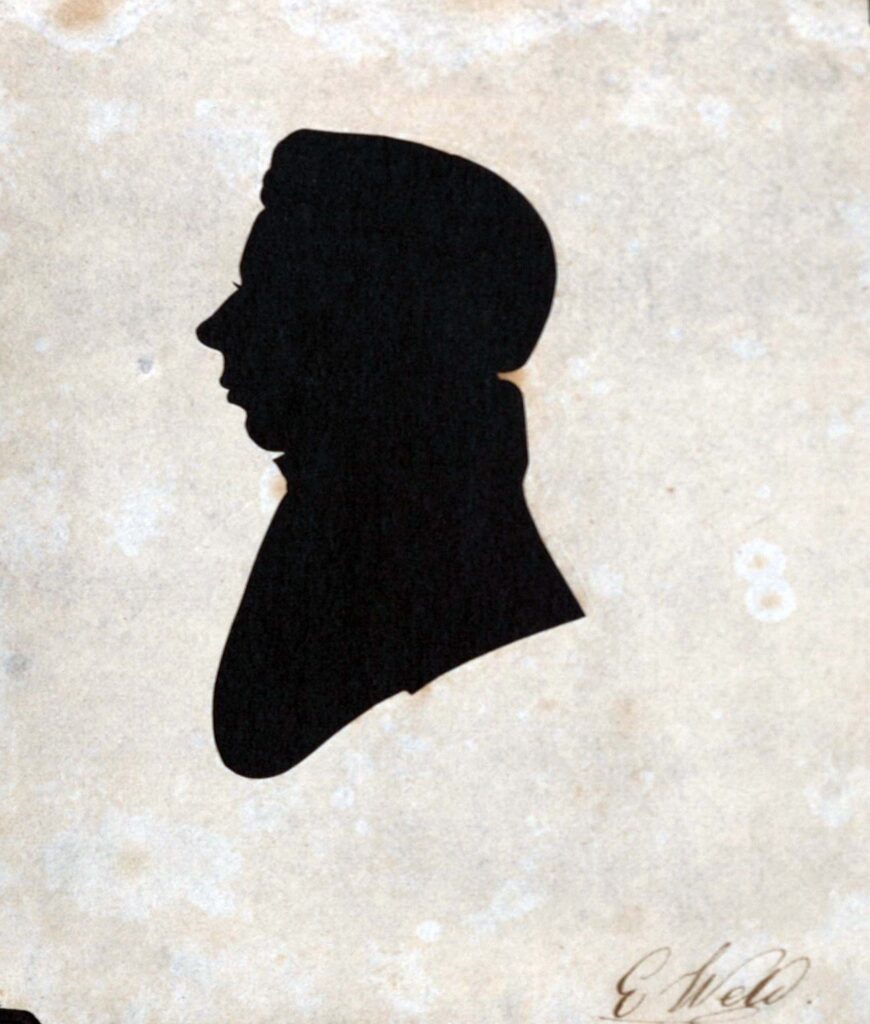
The Fearless Fighter of Epidemics
Eugene Weld was born in Boston in 1805. His father, Benjamin Weld, was a lawyer and a deputy collector under an esteemed Massachusetts general. In 1821, when Eugene was 15, the Weld family relocated to Brunswick. That fall, Eugene matriculated at Bowdoin. Throughout his entire undergraduate career Weld chose to live at his family home rather than living in a dormitory or boarding with other students. Still, Weld as not an asocial member of his class. He was a member of the Peucinian Society and counted Henry Wadsworth Longfellow among his friends. The Executive Government rarely cited Weld for misbehavior. He appears once in their records for a “special absence” and another time for neglecting a theme. In terms of academic interest, Weld’s classmates regarded him as a promising naturalist. He also attended lectures at the Maine Medical School his senior year. A talented student, the college asked Weld to participate at three different class exhibitions, where he spoke on topics ranging from astronomy to poetry. Upon graduating, Weld received the seventh rank in the class and he gave a disquisition at Commencement entitled, “The Moral Sublime.”
After leaving Bowdoin, Weld embarked on a career in medicine. He first moved to New York City to attend Columbia University’s medical school, from which he received his MD in 1828. Six years later Weld moved to New Iberia, Louisiana. He spent the next 15 years working as a physician for neighborhood of St. Martinsville. A contemporary described him as lacking, “no kindness and attention.” New Iberia was a city deeply intertwined with the slave economy of the antebellum South. Weld’s exact relationship to slavery is unknown, but the admiration from members of his community suggests that he did little to challenge his cultural milieu. A representative instance of Weld’s character occurred in 1849. That winter a cholera epidemic began to spread in New Iberia. Many doctors were so fearful of the disease that they would abandon infected family members, rather than risk contracting it. But when Weld learned of the epidemic, after returning from a trip to the North, he threw himself into treating total strangers. When a family suffering from the disease approached him, Weld went to help them without a second thought. He tirelessly tended to sick and dying patients. His obituary reports that, “Although complaining of exhaustion from want of sleep and mental anxiety, he refused to abandon the post he occupied for several days.” Eventually, Weld himself contracted cholera and became terminally ill. Still, even a few hours before the disease took his life, Weld forced himself to be active and care for the afflicted. He passed away on January 21, 1849, at the age of 43. He left behind no family, but was deeply mourned by the members of his community.